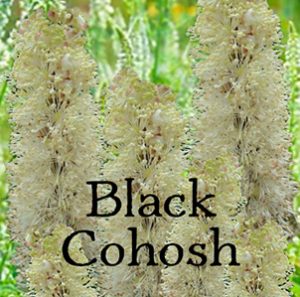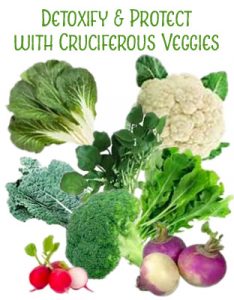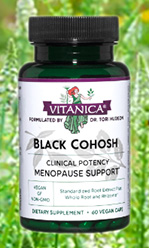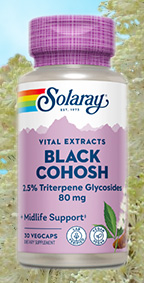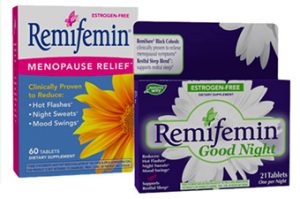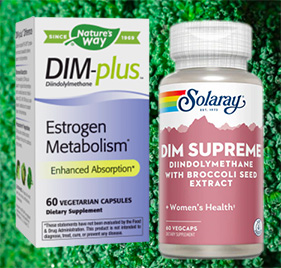Menopause ~ Balance Hormones Naturally
Menopause ~ Balance Hormones Naturally
Menopause is usually seen as an apprehensive milestone in a woman’s life. The transition period, pre-menopause, may begin around age 40. Perimenopause is the stage between age 35-45. This is characterized by powerful hormonal changes with wide-ranging effects on a woman’s bodily systems. Hot flashes and night sweats are the number one complaint as far as uncomfortable symptoms. In this newsletter we will look at this stage of life and some natural remedies for menopausal complaints.
The menopausal years and ensuing symptoms are the result of an imbalance in hormones. Deficiencies and excesses of both estrogen and progesterone may occur as ovaries and adrenals slowly stop producing reproductive hormones essential for pregnancy. Since these hormones are also protective for womens’ bodies, these imbalances may leave her vulnerable to heart disease and osteoporosis, among other health issues.
For many years, hormone replacement therapy (HRT) was the treatment for women in menopause. The replacement of hormones was to reduce the distressing symptoms of menopause but also to provide protection against heart disease and breast cancer. In 2002, however, researchers conducting a very large clinical study determined that HRT does not protect against these conditions and in fact causes them. The women in the study were told to cease their study medication. Since then many women have looked for alternative and less harmful methods to manage their menopausal symptoms.
A Beneficial Herb for Symptomatic Support
Black Cohosh
For more than 50 years numerous clinical trials have been conducted on the root of black cohosh (Cimicifuga racemosa) in the area of menopausal issues. It is the single most studied botanical for perimenopause and menopause symptoms. It has been approved by the German Commission E to treat hot flashes, heart palpitations, nervousness, irritability, vertigo, insomnia, and depression. Collective findings on black cohosh suggest it is most supportive for the following menopause-related symptoms:
- Hot flashes – day or night
- Mood swings
- Sleep disorders
- Body aches
While this herb acts similarly to other phytoestrogens, it does not contain any phytoestrogens itself, making it a safe choice for all women in their perimenopausal and menopausal years. The average recommended dose of the standardized extract of black cohosh is 40-80 mg per day. The dosage used in most clinical trials is 40 mg twice daily. There are no known contraindications and no known drug interactions.
Xenoestrogens
In menopause, changing levels of hormones cause imbalances. Small amounts of estrogen are still produced and imbalances may occur when these natural levels are combined with synthetic and environmental/xenoestrogens. Xenoestrogens include petrochemical-derived pesticides, herbicides and fungicides, solvents found in such products as nail polish, plastics, and meat from livestock fed with feed that has been sprayed with pesticides. These compounds are hormone disruptors, mimicking estrogen and binding to the body’s own estrogen receptors. This can create estrogen dominance which leads to many problems.
The most harmful estrogen mimic action of these synthetic and xenoestrogens is their ability to interfere with estrogen metabolism. After estrogen completes its activity in target cells, it is metabolized in the liver using several pathways. One pathway results in beneficial (good) estrogen metabolites. These are then released into the bloodstream where they benefit the heart and bones. There is also a “bad” estrogen metabolism pathway, resulting in bad metabolites which result in hormonal metabolism imbalances, and can cause or worsen mood swings, irritability, osteoporosis, and many other conditions. Assisting the liver’s proper detoxification/metabolism pathways then, is important for healthy hormonal balance and may assuage some of the distressing perimenopausal/menopausal symptoms.
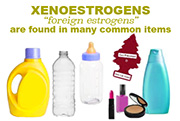
Critical Nutrient Support
DIM
Diindolymethane (DIM for short) is a natural plant compound. It is found in broccoli and cabbage and other cruciferous vegetables. It is one of the cancer-fighting substances found in this vegetable group. DIM improves hormonal balance by shifting the way estrogen is metabolized in our bodies. It is able to shift estrogen metabolism to the “good” pathway. DIM supplements can result in increased amounts of estrogen broken down into the good metabolites. This also results in a reduction in the “bad” estrogen metabolites. It does not increase or decrease the hormone itself — it merely directs how it is metabolized. This healthier pathway is also associated with breast cancer prevention. Dosage is generally 120 mg and women often take it everyday to ensure proper estrogen metabolism. Women suffering from hormone imbalance symptoms may find more relief by doubling this dose. This product may also be used by men to assist with detoxification of xenoestrogens and thereby improve/maintain a healthy balance in testosterone levels.
Evergreen Offers Several Choices
Evergreen Nutrition has a large section devoted to women’s health including many options for hormone balance. Vitanica’s Black Cohosh utilizes both the standardized extract and the whole dried root powder. This product is described as most supportive for the following menopause-related symptoms: hot flashes – day or night, mood swings, sleep disorders, and body aches. It is vegan and gluten free. Solaray’s Black Cohosh product also uses the extract and whole herb, and is in a vegan capsule.
Remifemin from Nature’s Way is the clinically studied black cohosh dose used in Germany and contains lactose but no gluten. Remifemin Good Night includes the sedative herbs valerian, lemon balm, and hops to help ensure restful sleep.
DIM-plus from Nature’s Way is a perennial best-seller, containing 100 mg of DIM along with a cruciferous vegetable blend. DIM Supreme from Solaray contains 100 mg of DIM along with a broccoli seed extract for extra detoxifying sulphoraphane.
Back to Blog
